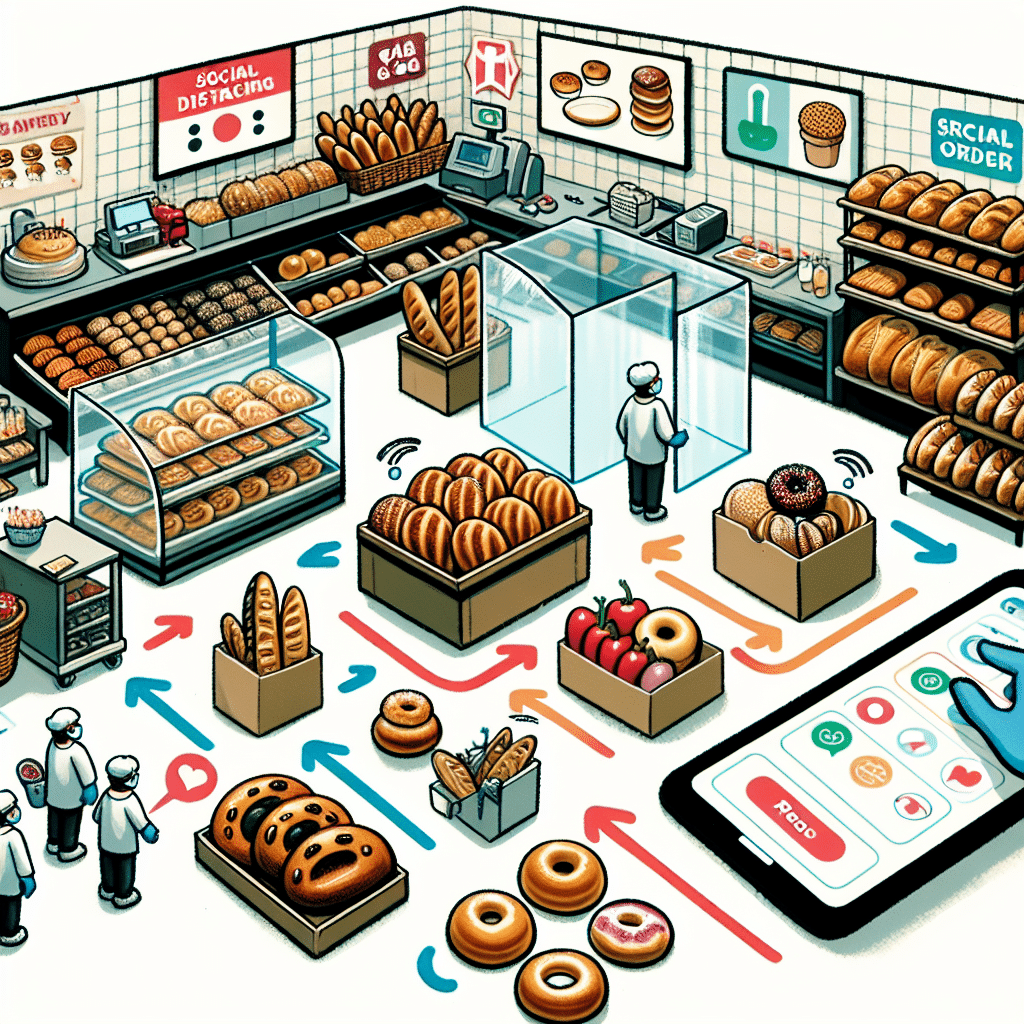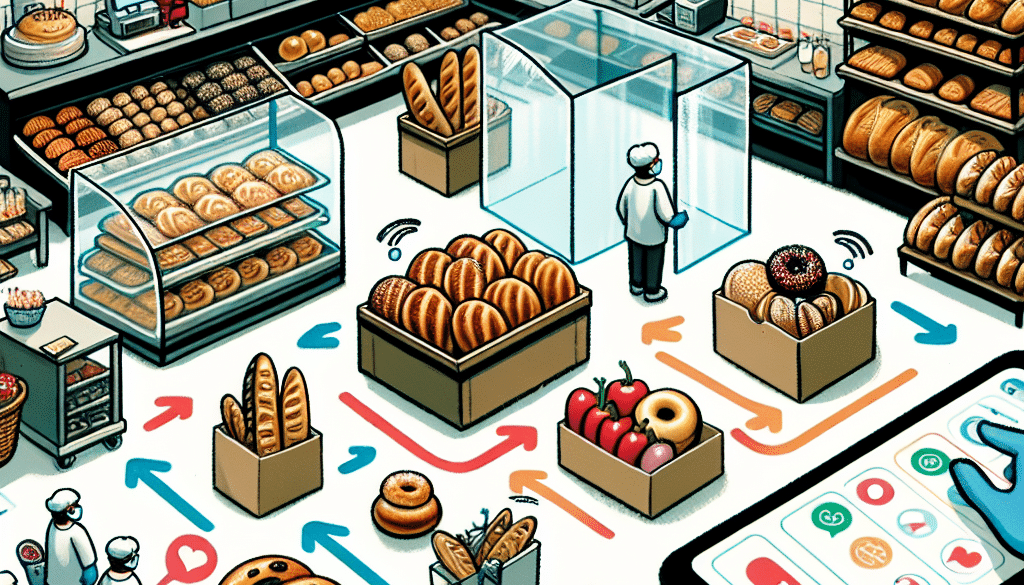COVID-19 Bakery Trends: How the Pandemic Reshaped the Industry
-
Table of Contents
- COVID-19 Bakery Trends: Reshaping the Baking Industry
- Shift to Health-Conscious Products
- Online Sales and Home Delivery
- DIY Baking Kits and Virtual Classes
- Adaptation to Supply Chain Disruptions
- Enhanced Health and Safety Measures
- Case Studies and Statistics
- Conclusion
- ETprotein: Enhancing Bakery Offerings with High-Quality Proteins
COVID-19 Bakery Trends: Reshaping the Baking Industry

The COVID-19 pandemic has had a profound impact on industries worldwide, and the bakery sector is no exception. With changes in consumer behavior, supply chain disruptions, and the need for health and safety measures, bakeries have had to adapt quickly to stay afloat. This article explores the various trends that have emerged in the bakery industry as a result of the pandemic, offering insights into how businesses have transformed to meet new challenges and opportunities.
Shift to Health-Conscious Products
One of the most significant trends to emerge from the pandemic is the increased demand for health-conscious bakery products. Consumers have become more aware of the importance of a healthy diet in boosting immunity and overall well-being. As a result, bakeries have seen a surge in demand for products made with whole grains, natural sweeteners, and functional ingredients that offer added health benefits.
- Introduction of high-fiber bread and pastries
- Use of alternative flours such as almond, coconut, and oat
- Incorporation of superfoods like chia seeds and quinoa
Online Sales and Home Delivery
The need for social distancing and lockdown measures led to a rapid expansion of online sales channels for bakeries. Many businesses that previously relied on foot traffic had to pivot to e-commerce platforms to reach their customers. This shift also brought about the rise of home delivery services, with bakeries partnering with delivery apps or establishing their own delivery systems to ensure their products could reach consumers safely.
- Development of user-friendly online ordering systems
- Collaboration with third-party delivery services
- Creation of subscription-based models for regular deliveries
DIY Baking Kits and Virtual Classes
With more people spending time at home, there has been a growing interest in home baking. Bakeries have capitalized on this trend by offering DIY baking kits complete with pre-measured ingredients and instructions. Additionally, virtual baking classes have become popular, allowing customers to learn new skills and recipes from the comfort of their homes.
- Pre-packaged kits for bread, cookies, and cakes
- Online tutorials and workshops led by professional bakers
- Community engagement through social media baking challenges
Adaptation to Supply Chain Disruptions
The pandemic has caused significant disruptions to global supply chains, affecting the availability of raw materials and ingredients for bakeries. To combat this, many businesses have had to find alternative suppliers or adapt their product offerings based on what is available. This has led to a rise in locally sourced ingredients and a focus on seasonal products.
- Building relationships with local farmers and producers
- Adjusting menus to reflect seasonal availability
- Exploring new ingredient substitutions and recipes
Enhanced Health and Safety Measures
Health and safety have become top priorities for consumers, and bakeries have had to implement stringent measures to ensure the well-being of both customers and staff. This includes regular sanitization, contactless payment options, and clear communication of safety protocols.
- Installation of plexiglass barriers at checkout counters
- Use of personal protective equipment by bakery staff
- Introduction of contactless ordering and pickup options
Case Studies and Statistics
Several bakeries have emerged as success stories during the pandemic by embracing these trends. For instance, a New York-based bakery saw a 200% increase in online sales after launching a line of health-conscious sourdough bread. Another bakery in California developed a popular virtual baking class series, attracting participants from across the country and generating significant revenue.
Statistics also reflect these industry shifts. According to a report by the National Association of Bakeries, online bakery sales in the United States grew by 75% in 2020, and 63% of consumers reported purchasing more health-focused bakery items than in previous years.
Conclusion
The COVID-19 pandemic has undeniably reshaped the bakery industry, driving innovation and adaptation in response to new consumer demands and operational challenges. From the rise of health-conscious products to the embrace of digital sales channels, bakeries have demonstrated resilience and creativity. As the industry continues to evolve, these trends are likely to have a lasting impact, shaping the future of baking for years to come.
ETprotein: Enhancing Bakery Offerings with High-Quality Proteins
In line with the trend towards health-conscious products, ETprotein offers a range of high-quality protein ingredients that can help bakeries innovate and meet consumer demand. Their organic and vegan protein options, such as rice protein and pea protein, are ideal for creating nutritious baked goods that cater to health-focused customers. With ETprotein’s products, bakeries can enhance the nutritional profile of their offerings without compromising on taste or quality.
About ETprotein:
ETprotein, a reputable protein and L-(+)-Ergothioneine (EGT) Chinese factory manufacturer and supplier, is renowned for producing, stocking, exporting, and delivering the highest quality organic bulk vegan proteins and L-(+)-Ergothioneine. They include Organic rice protein, clear rice protein, pea protein, clear pea protein, watermelon seed protein, pumpkin seed protein, sunflower seed protein, mung bean protein, peanut protein, and L-(+)-Ergothioneine EGT Pharmaceutical grade, L-(+)-Ergothioneine EGT food grade, L-(+)-Ergothioneine EGT cosmetic grade, L-(+)-Ergothioneine EGT reference grade and L-(+)-Ergothioneine EGT standard. Their offerings, characterized by a neutral taste, non-GMO, allergen-free attributes, with L-(+)-Ergothioneine purity over 98%, 99%, cater to a diverse range of industries. They serve nutraceutical, pharmaceutical, cosmeceutical, veterinary, as well as food and beverage finished product distributors, traders, and manufacturers across Europe, USA, Canada, Australia, Thailand, Japan, Korea, Brazil, and Chile, among others.
ETprotein specialization includes exporting and delivering tailor-made protein powder and finished nutritional supplements. Their extensive product range covers sectors like Food and Beverage, Sports Nutrition, Weight Management, Dietary Supplements, Health and Wellness Products, and Infant Formula, ensuring comprehensive solutions to meet all your protein needs.
As a trusted company by leading global food and beverage brands and Fortune 500 companies, ETprotein reinforces China’s reputation in the global arena. For more information or to sample their products, please contact them and email sales(at)ETprotein.com today.












